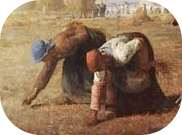
Verse 1. “Be merciful unto me, O God: for man would swallow me up –” The same words concerning man's actions are applicable to the situation and circumstances of David pursued by his enemies; of Christ, persecuted by the Jews; of the Church, afflicted in the world; and of the soul, encompassed by enemies, against whom she is forced to wage perpetual war.
George Horne
Verse 3. “What time I am afraid, I will trust in thee.” David tells God that he will make so bold of His house as to step into it when overtaken in a storm; and he doth not question his welcome. Indeed, all saints are taught the same lesson: (i) To renounce their own strength, and rely on the power of God; (ii) their own policies, and cast themselves on the wisdom of God; (iii) their own righteousness, and expect all from the pure mercy of God in Christ. This act of faith is so pleasing to God, that such a soul shall never be put to shame.
William Gurnal
Verse 3. “What time I am afraid, I will trust in thee.” There are times when some graces may be out of use, but there is no time when Faith can be said to be out of use. Faith is the “eye”, or the “mouth”, or the “hand”, and one or other of these is in use all the day long. Faith is the eye to see, the hand to receive or work, the mouth to eat; and a Christian should be seeing, or receiving, or working, or feeding, all the day long. Let it rain, let it blow, let it thunder, let it lighten, a Christian must still believe. So, says the good man, “At what time I am afraid, I will trust in thee.”
John Bunyan
Verse 4. “– I will not fear what flesh can do unto me.” In the compass of six verses in Matthew ten, our Saviour commands us three times not to fear man; for if thy heart quail at man, how wilt thou behave thyself in the war against Satan, whose little finger is heavier than man's loins? The Romans had practice weapons, or cudgels, with which they trained before they progressed to the sharp. But, if thou canst not bear a bruise in thy flesh from man's cudgels and blunt weapons, what wilt thou do when thou shalt have Satan's sword in thy side? God counts Himself reproached when we fear sorry man.
Gurnall
Verse 4. “– I will not fear what flesh can do unto me.” One of the arguments put forward in an effort to make the martyr Hooper recant and acknowledge his “heresy” was the fact that “life is sweet, and death is bitter.” “I know thaw well,” was his reply, “but eternal life is more sweet, and eternal death more bitter.” “Fear not them that only kill the body, but cannot harm the soul, but fear rather Him that can cast both soul and body into hell.”
Verse 5. “Every day they wrest my words –” So it has been from the beginning, for Satan “wrested” the Lord's words in the green garden of Eden - “Yea, hath God said –?” His children did it with the Saviour - “This fellow said –” And they have been doing it ever since where the truth didn't suit their palates.
Verse 8. “– put thou my tears into thy bottle –” The custom of putting tears into the lachrymatory, or tear bottle, so well known among the Romans, seems to have been more anciently in use in Asia, and particularly among the Hebrews. These tear bottles were placed on the graves of the deceased as a memorial of the affection and sorrow of their surviving relations and friends. So, David will have the Lord remember his tears which have been “meat unto him, both in the day and night.” “Put thou my tears into thy bottle.”
From The Biblical Museum
Verse 8. “– put thou my tears into thy bottle –” It is the witty observation of one, that God is said in Scripture to have a “bag” and a “bottle,” “My transgression is sealed up in a bag,” Job 14:7. That is, God takes every sin we comitt and secures it in a bag until the day when that bag shall be opened. So, he has a bag for our sins, and a bottle for our tears. But, we should be more careful to fill the bottle with our tears than the bag with our sins.
Adapted from John Trapp
Verse 10. “In God will I praise his word –” My dear friends, the next regret of a dying man – concerns the new view which comes to him of the study of God's Word. Of the many things he wishes he had done, and would do otherwise, if he were recalled from his half-open grave, this is the most important. Ah! He certainly says then: How differently I ought to have acted with regard to the Word of God! How much more I ought to have studied it! How much better I ought to be aquainted with it, in order for the more to live it out, and communicate it to others.
From Adolphe Mond's Farewell
| This Page Title – Gleaning in the Psalms (Psalm 57) The Wicket Gate Magazine "A Continuing Witness". Internet Edition number 97 – placed on line July 2012 Magazine web address – www.wicketgate.co.uk |